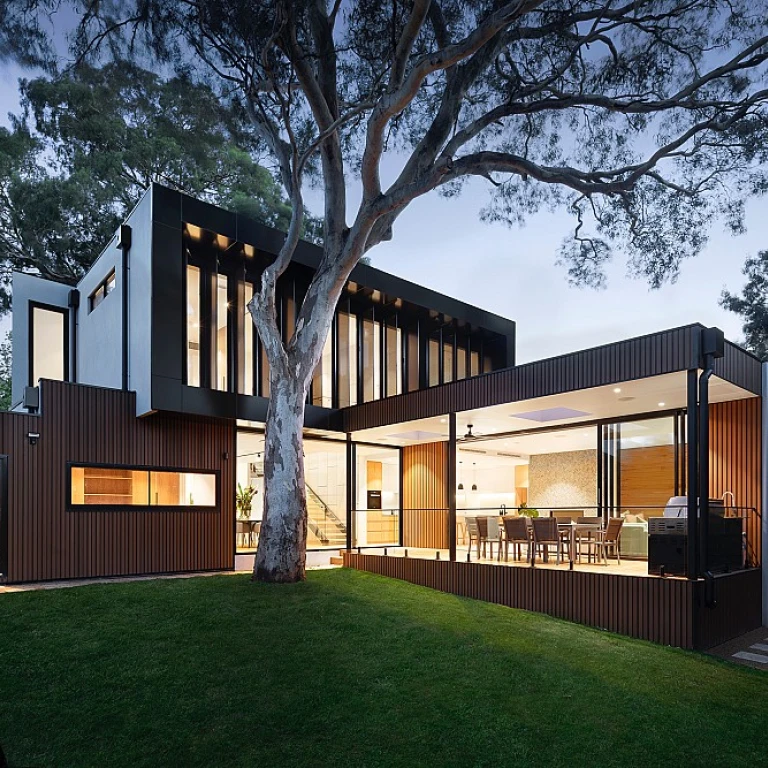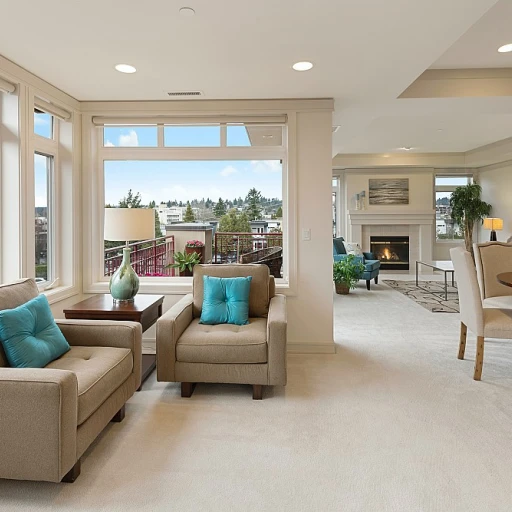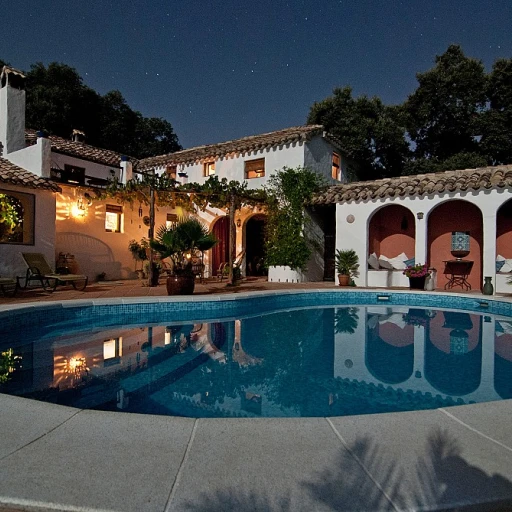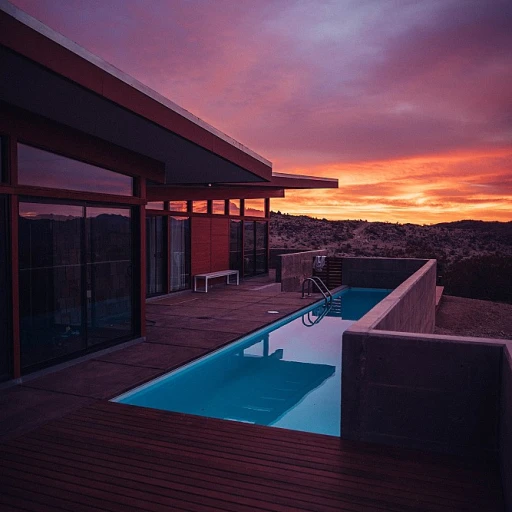Understanding Privacy Needs in Exclusive Estates
Identifying the Unique Privacy Challenges
Privacy in exclusive estates isn't just about keeping prying eyes away; it's about creating a sanctuary where residents can truly feel at ease. Understanding the specific privacy needs in these unique environments is crucial. Estate owners must consider not only the size and layout of their properties but also the lifestyle and expectations of their residents.
Assessing the Estate Layout
Each estate is different, and privacy needs can vary greatly depending on the layout and location. Large estates might face challenges such as expansive perimeters that are difficult to secure, while smaller estates might need to focus more on soundproofing and visual barriers. Advanced soundproofing can be an essential tool in maintaining a peaceful environment.
Understanding Resident Expectations
Residents of exclusive estates often have high expectations when it comes to privacy. They may require spaces that allow for both social interactions and solitude. This balance can be achieved through thoughtful design and the integration of advanced security technologies, which will be discussed further in the next sections.
Evaluating External Threats
External threats to privacy can come in many forms, from paparazzi to drones. Estate owners must be proactive in identifying these threats and implementing strategies to mitigate them. This could involve a combination of architectural design, landscaping, and legal measures to ensure comprehensive privacy protection.
Advanced Security Technologies
Embracing Cutting-Edge Security Solutions
In the realm of exclusive estates, security technologies have evolved significantly, offering a range of options to enhance privacy. Estate owners are increasingly turning to sophisticated systems that not only deter intruders but also provide peace of mind. Here are some advanced security technologies that can be integrated into your estate:
- Smart Surveillance Systems: Modern surveillance cameras equipped with AI capabilities can identify unusual activities and send real-time alerts to your devices. These systems can be customized to cover specific areas of your estate, ensuring comprehensive monitoring.
- Biometric Access Control: Utilizing fingerprint or facial recognition technology, biometric systems offer a higher level of security by restricting access to authorized individuals only. This not only enhances security but also adds a layer of convenience for residents.
- Perimeter Intrusion Detection Systems (PIDS): These systems use sensors and cameras to detect any unauthorized entry attempts along the estate's boundaries. They can be integrated with other security measures to provide a robust defense mechanism.
- Drone Surveillance: For larger estates, drones equipped with cameras can provide aerial surveillance, offering a bird's-eye view of the property. This can be particularly useful for monitoring vast landscapes and detecting any potential threats from afar.
By investing in these advanced technologies, estate owners can significantly bolster their privacy and security measures. While technology plays a crucial role, it's important to remember that it should complement other strategies such as architectural design and landscaping, which are also vital in maintaining privacy in exclusive estates.
Architectural Design for Privacy
Innovative Architectural Solutions for Enhanced Privacy
In the realm of exclusive estates, architectural design plays a pivotal role in safeguarding privacy. The layout and structure of a property can significantly influence how secluded and secure an estate feels. Here, we delve into some of the architectural strategies that estate owners can employ to enhance privacy.
Firstly, consider the orientation of the building. Positioning living spaces away from public roads or neighboring properties can naturally shield them from prying eyes. Additionally, strategic placement of windows and balconies can maximize views while minimizing visibility from outside.
Incorporating wellness facilities within the estate can also contribute to privacy. These spaces can be designed as secluded retreats, offering both tranquility and a buffer from the outside world.
Moreover, utilizing advanced materials for walls and windows can enhance soundproofing, further ensuring that indoor activities remain private. This approach complements the use of advanced soundproofing technologies discussed earlier, creating a serene and private environment.
Lastly, integrating smart home technology allows for dynamic control over privacy features, such as automated blinds and smart glass, which can be adjusted according to the time of day or the presence of guests.
In essence, architectural design is not just about aesthetics; it's a crucial element in crafting a private sanctuary within an exclusive estate.
Landscaping as a Privacy Tool
Nature's Role in Privacy Enhancement
In the realm of exclusive estates, landscaping transcends aesthetics, playing a pivotal role in safeguarding privacy. Thoughtfully designed outdoor spaces can serve as natural barriers, shielding inhabitants from prying eyes and offering a serene sanctuary.
Strategic Planting for Privacy
Utilizing tall hedges, dense shrubs, and strategically placed trees can create a living wall that not only enhances privacy but also adds to the estate's beauty. Fast-growing species like bamboo or evergreens are popular choices, as they provide year-round coverage.
- Layered Planting: Combining different plant heights and types can effectively obscure views without creating a fortress-like appearance.
- Green Screens: Vertical gardens or trellises with climbing plants can be used to cover unsightly views or add an extra layer of privacy.
Water Features as Sound Barriers
Incorporating water features such as fountains or waterfalls can mask conversations and other sounds, contributing to a more private environment. This approach complements the advanced security technologies discussed earlier, adding an auditory layer of seclusion.
Environmental Considerations
While landscaping offers numerous privacy benefits, it's essential to consider environmental factors such as climate, soil type, and local wildlife. Choosing native plants can ensure sustainability and reduce maintenance, aligning with the legal considerations discussed in the subsequent section.
By integrating these natural elements, estate owners can create a harmonious balance between privacy and the natural beauty of their surroundings, enhancing the overall lifestyle experience.
Legal Considerations and Privacy Laws
Legal Frameworks and Privacy Protections
When it comes to safeguarding privacy in exclusive estates, understanding the legal landscape is crucial. Estate owners must navigate a complex web of privacy laws and regulations that vary significantly by region. These laws not only protect residents but also set boundaries for what can and cannot be done to ensure privacy.
One of the key areas to consider is data protection. With the integration of advanced security technologies, such as surveillance cameras and smart home systems, the collection and storage of personal data become inevitable. It's essential to comply with data protection regulations like the General Data Protection Regulation (GDPR) in Europe or the California Consumer Privacy Act (CCPA) in the United States. These laws mandate transparency in data handling and give residents rights over their personal information.
Furthermore, estate owners should be aware of zoning laws and building codes that may impact architectural design choices aimed at enhancing privacy. These regulations can influence everything from the height of perimeter walls to the placement of security features, ensuring that privacy measures do not infringe on community standards or neighboring properties.
Legal considerations also extend to the use of landscaping as a privacy tool. While natural barriers like trees and hedges are effective, they must comply with local environmental regulations. This ensures that the ecological impact is minimized while maximizing privacy.
Lastly, it's important to balance legal compliance with lifestyle needs. Privacy should not come at the expense of comfort or convenience. Engaging with legal experts who specialize in real estate and privacy law can provide valuable insights and help estate owners create a harmonious living environment that respects both legal obligations and personal preferences.
Balancing Privacy with Lifestyle Needs
Finding the Right Balance
For estate owners, achieving the perfect balance between privacy and lifestyle can be a delicate dance. While it's crucial to maintain a sanctuary away from prying eyes, it's equally important to ensure that the estate remains a vibrant space for living and entertaining. This balance requires thoughtful consideration of various elements that contribute to both privacy and lifestyle.
Integrating Privacy with Daily Living
Privacy doesn't have to come at the expense of comfort or functionality. Consider how advanced security technologies can be seamlessly integrated into everyday life. For example, smart home systems can provide peace of mind while offering convenience through automation. Similarly, architectural designs can incorporate private spaces without sacrificing aesthetic appeal or accessibility.
Designing Spaces for Social Interaction
Exclusive estates are often venues for social gatherings, whether intimate dinners or larger events. Landscaping can play a crucial role here, creating natural barriers that offer seclusion without isolating guests. Thoughtful design can ensure that outdoor spaces remain both inviting and private, allowing for social interaction in a secure environment.
Adapting to Legal Frameworks
While privacy is a priority, it's essential to remain compliant with local privacy laws and regulations. Understanding these legal considerations can help estate owners implement privacy measures that are both effective and lawful. This ensures that privacy strategies are sustainable and do not inadvertently infringe on legal requirements.
Personalizing Privacy Solutions
Every estate is unique, and so are its privacy needs. Tailoring solutions to fit specific lifestyle requirements can enhance both privacy and enjoyment of the estate. Whether through bespoke architectural features or personalized security systems, the key is to create a harmonious environment that respects both privacy and lifestyle aspirations.



